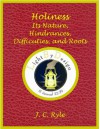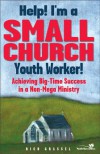5
Followers
21
Following
Inklings
I'm addicted to books. According to Umberto Eco I am building an anti-library, meaning I own way more books than I have read. I love good fiction, literature, theology, Biblical studies, philosophy, children's books, and lots more.
Currently reading
Crazy Love: Overwhelmed by a Relentless God
The Kingdom New Testament: A Contemporary Translation
The Theology of John Wesley: Holy Love and the Shape of Grace
Progress:
244/331 pages
House of Leaves
Progress:
50/662 pages
The Hound of the Baskervilles (with Illustrations by Sidney Paget)
Progress:
35 %
The Dead Zone
Progress:
52/402 pages
Holiness
Help! I'm a Small Church Youth Worker: Achieving Big-Time Success in a Non-Mega Ministry
Progress:
57/115 pages
How God Became King: The Forgotten Story of the Gospels
Progress:
69 %
The Hound of the Baskervilles
Accompany Them with Singing: The Christian Funeral
 I really liked a lot of what long has to say about the meaning of funerals--we are performing a drama that depicts the Gospel. I really appreciate his idealism and helpful diagramming of what a Christian funeral could/should look like. The second and third chapters were where I found myself disagreeing with him. It seems that long does not believe in bi- or tri-partate persons. He does not believe that people have souls but that they are souls. He labels anyone with such notions as "quasi-gnostics" or "Platonists." He uses N.T. Wright to make part of his point, and then diverges with him at this one. At first, I believed that Long was advocating some kind of "soul sleep," but he clarified that he believes that the person who has died immediately raises to life in the final Resurrection of the Dead. The reasons he gives for this belief are Einsteinian theories of relative time--eternal vs earthly (historic). So, to his view, there is not intermediate state from the dead person's perspective, but this doesn't get around to explaining exact what is being raised. If it is the essence of the person, doesn't that constitute a spirit or a soul? Where does the continuity come from? In these matters he is unclear and unhelpful whereas N.T. Wright was both.
I really liked a lot of what long has to say about the meaning of funerals--we are performing a drama that depicts the Gospel. I really appreciate his idealism and helpful diagramming of what a Christian funeral could/should look like. The second and third chapters were where I found myself disagreeing with him. It seems that long does not believe in bi- or tri-partate persons. He does not believe that people have souls but that they are souls. He labels anyone with such notions as "quasi-gnostics" or "Platonists." He uses N.T. Wright to make part of his point, and then diverges with him at this one. At first, I believed that Long was advocating some kind of "soul sleep," but he clarified that he believes that the person who has died immediately raises to life in the final Resurrection of the Dead. The reasons he gives for this belief are Einsteinian theories of relative time--eternal vs earthly (historic). So, to his view, there is not intermediate state from the dead person's perspective, but this doesn't get around to explaining exact what is being raised. If it is the essence of the person, doesn't that constitute a spirit or a soul? Where does the continuity come from? In these matters he is unclear and unhelpful whereas N.T. Wright was both.












